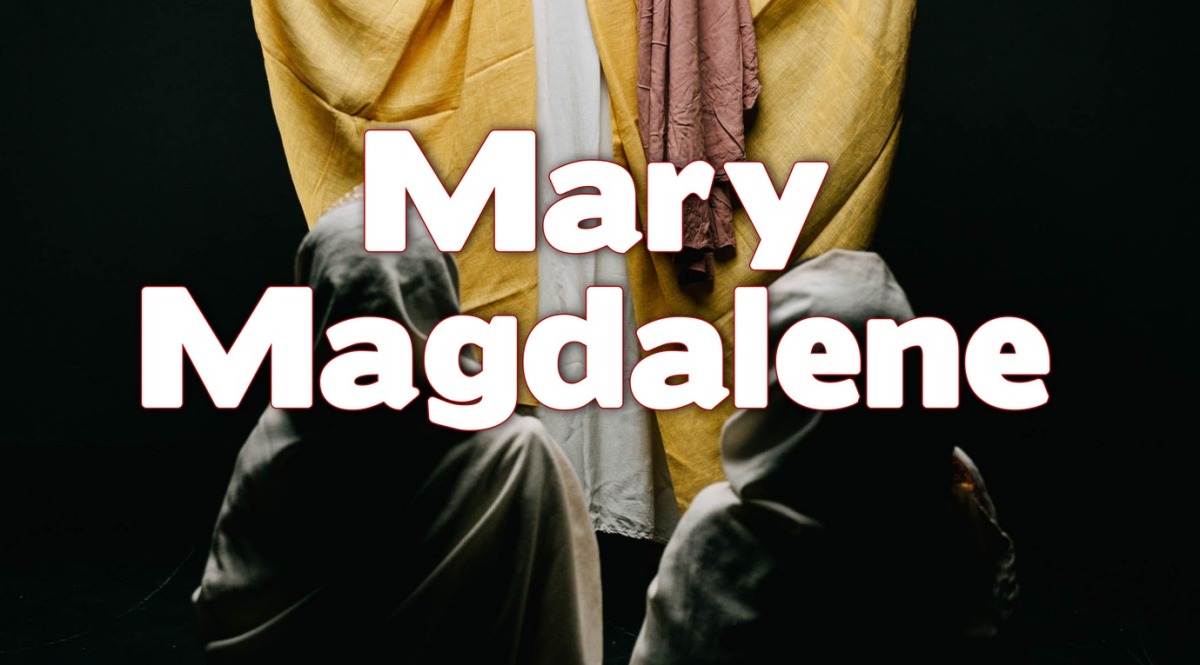Today’s reading is John 20.
Why did John single out Mary Magdalene in his account?
The other accounts give different details about the women who went to the tomb on that first day of the week following the crucifixion of Jesus. “Mary Magdalene and the other Mary went to see the tomb” (Matthew 28:1, ESV). The other Mary is “the mother of James and Joseph” (Matthew 27:56). Or you might read, “Mary Magdalene, Mary the mother of James, and Salome” went to anoint Jesus’s body on that Sunday (Mark 16:1, ESV). Or another account tells us the “women who had come with him from Galilee” went to the tomb with prepared spices, and then names the women as “Mary Magdalene and Joanna and Mary the mother of James and the other women” (Luke 24:10, ESV).
Why does John only mention Mary?
Honestly, I don’t know. But did you notice all the accounts actually give Mary Magdalene prominence? As different as the accounts are about which women, they all put Mary Magdalene first in their lists. That’s surprising to me considering Mary Magdalene is a veritable nobody in the gospels. Other than in these resurrection accounts she is only mentioned elsewhere in Luke 8:2 as one among several women who had been healed of evil spirits and infirmities. Interestingly, she is mentioned first in that passage as well.
I admit, John’s recollection of that Sunday morning’s events is hard to reconcile in a detailed fashion with the other accounts. However, first, keep in mind none of the authors are trying to provide us a moment by moment account of what happened at any time in Jesus’s life, not even on this most magnificent of days. None of the authors are concerned with precisely which woman went where at what time. They are concerned with the witnessing and messaging that Jesus rose from the dead. They all agree on that.
Additionally, note a significant detail in John 20:2. Mary ran to Peter and the other disciple and reported:
They have taken the Lord out of the tomb, and we do not know where they have laid him (ESV).
Did you catch the pronoun? Who did not know where the thieves had laid the body of Jesus? “We.” “We” do not know. In other words, though John only tells us about Mary going to the tomb, he quotes her as saying, “We” do not know. Though in an easily overlooked detail, even John admits more than one woman going to the tomb. And perhaps here we learn why John mentions only Mary Magdalene and why all the accounts giver her prominence. It appears while the other women stayed behind and had their angel sightings and resurrection appearances, Mary ran immediately to the apostles. She was the first to tell the apostles about the empty tomb. That event seems to dominate John’s memory of the morning.
But someone will say, “That pronoun is just a manner of speaking.” Is it? Consider what Mary says to the angels when they questioned why she was weeping in John 20:13:
They have taken away my Lord, and I do not know where they have laid him.
Who didn’t know where Jesus’s body was laid? “I.” Mary knew how to express individuality. She knew how to say she herself didn’t know something. But when she spoke to Peter and John, she said, “We.”
In other words, John didn’t get it wrong. John didn’t make up a story. I can speculate as I did above why John homed in on Mary instead of telling us about the other women as well. But John’s account doesn’t contradict the other accounts. He too wrote that others went to the tomb with Mary on that Sunday morning. So, let’s not be surprised when the other accounts give us more details on who those women were. And the others, like John, give Mary Magdalene prominence among those women.
Let us be amazed at the testimony of Mary Magdalene. She did not expect resurrection. She didn’t even suspect resurrection when the tomb was empty. But she became convinced of resurrection and she in turn tried to convince the apostles. But, they had to see for themselves. I hope we will do better than that and believe based on the testimony.
Do you believe? Can we help you? If so, let us know in the comments below.
Tomorrow’s reading is John 20.
PODCAST!!!
PATHS:
Discuss Today’s Meditation with Your Family
How does John 20 prompt or improve your trust in God?

